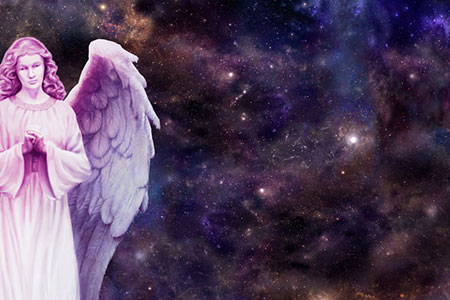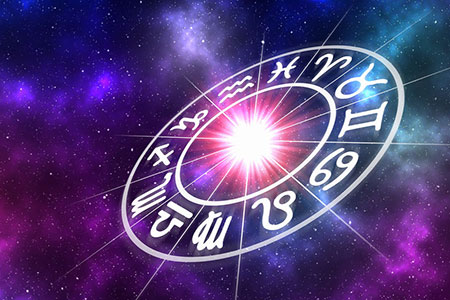self-knowledge
Working With Ariel, Raziel And Metatron
 Archangel Ariel has an ‘Earth Mama’ energy. She feels like freshly tilled soil and smells like the air after it rains. She works with the fairy realm, and I often see her around clients who work in a creative field, especially music.
Archangel Ariel has an ‘Earth Mama’ energy. She feels like freshly tilled soil and smells like the air after it rains. She works with the fairy realm, and I often see her around clients who work in a creative field, especially music.
Archangel Ariel is wonderful to call on if you are working with the Earth, exploring creative projects or need to manifest financial prosperity.
She is passionate about working with individuals who need healthy boundaries in their relationships or must find ways to stand up for themselves that won’t compromise their sensitive nature or force them to be confrontational or aggressive.
Ariel is also wonderful to work with if you often feel like you were abandoned on this planet without a rule book and struggle to make sense of people and life in general. She can help you understand how to manifest and better flow with the energies of the earthly realm.
Archangel Raziel
Archangel Raziel has a sorcerer or wizard energy. He is sometimes mistaken for an Ascended Master because he has a similar energy. When he appears around a client, I know that they are probably working on remembering how to manifest from Source energy all they need and desire. Raziel helps them to establish a greater connection with the Source.
Birth Order And The Empath
 Most of us are familiar with the notion that the personality traits of the firstborn are typically different from the middle sibling, or the youngest child in the family, and so on. But many empaths do not realize how they may be impacted by their birth order in the family.
Most of us are familiar with the notion that the personality traits of the firstborn are typically different from the middle sibling, or the youngest child in the family, and so on. But many empaths do not realize how they may be impacted by their birth order in the family.
In The Birth Order Book, author Kevin Lemar gives a detailed outline of these so-called ‘birth order’ characteristics and qualities.
Firstborns, as well as only children, for example, are often associated with leadership attributes and stronger personalities, along with being more protective, fearless, and reliable than their siblings. However, the firstborn may also exhibit some less desirable traits, such as being controlling, bossy and impatient.
The middle-born tend to be social butterflies and peacekeepers, who are focused on fairness and keeping everyone happy. The youngest-born tend to be fun-loving, outgoing, creative, free spirited and can be adept at manipulating others to do things for them.
Only children tend to be mature for their age, perfectionistic and conscientious, but may feel the burden of high parental expectations.
The Firstborn Empath
My experience with empaths has been that the firstborn and only child empaths are indeed more protective, fearless, independent, reliable, but in the empath these protective instincts are magnified tenfold.
They also tend to feel it is their responsibility to solve every human problem and protect everyone around them, regardless. I often see a very enhanced sense of responsibility.
The Self-Healing Miracle Of Letting Go
 In the mid-90s, I had the opportunity to attend The Sedona Method Technique Teacher Training course in Arizona. The experience pierced the core of my being and changed my life forever.
In the mid-90s, I had the opportunity to attend The Sedona Method Technique Teacher Training course in Arizona. The experience pierced the core of my being and changed my life forever.
Initially, I was reluctant to go, because I was living in Michigan at the time with my husband and two young daughters. My youngest was around a year old and our older daughter was only five. We had not been living in Michigan very long as we had only recently moved there, and I was terribly worried about leaving them for two weeks!
Nevertheless, I convinced myself to go, because my husband had gone to a previous workshop and raved about how it transformed his life. I sensed it would be good tool to incorporate into my psychic readings and metaphysical work.
When I arrived at the workshop there were attendees from all over the world, including psychiatrists, psychologists, and even scientists. To be honest, I felt a little awkward being thrown in with a bunch of ‘genius nerds’ with various fancy post-graduate degrees. It was a bit intimidating to feel that many of them probably had a much better understanding and formal education on human behavior than I did. However, that did not prevent me from also learning this wonderful technique.
The Sedona Method is based on the concept of Emotional Intelligence (EQ). It is different from intellectual intelligence, because it refers to our ability to recognize and regulate our own emotions, and how skilled we are at using social awareness to find solutions to daily challenges and life problems.
The Sedona Method therefore teaches one how to improve your EQ. In the same way we can go to the gym to strengthen a muscle, or do brain training puzzles to improve our memory, we can also train and develop our emotional intelligence.
Our natural impulse when something makes us sad, angry, or fearful, is to resist and fight back, or shut down emotionally to it. Emotional intelligence requires that we take a step back, take a breath, and release the urge to go with a kneejerk reaction of firing back or shutting down.
Your Beliefs Shape Your Reality
 In metaphysics and alternative spirituality the idea that our belief or faith shapes our reality is a well-known concept. This notion is found again and again in sacred texts, ancient religions, and wisdom traditions.
In metaphysics and alternative spirituality the idea that our belief or faith shapes our reality is a well-known concept. This notion is found again and again in sacred texts, ancient religions, and wisdom traditions.
In The Bible, for example, Jesus says, “With a mustard seed of faith you can move a mountain,” and the Buddha says, “The mind is everything, what we think we become.” These are just two examples among many others.
What is a belief? It is simply a thought that we choose to think again and again. Faith is when a belief becomes established as a pattern.
The mind, our consciousness, is where belief occurs. Whatever we choose to believe about ourselves, and about life, becomes true for us. The thoughts we hold in our mind shapes our reality.
‘Old school’ belief and faith is however a little different and maybe less trendy than the modern idea of the Law of Attraction and our ability to ‘manifest,’ that has become so popular in recent years in spiritual circles and the metaphysical community. Yet, it it is still an important spiritual principle.
Our beliefs and biases work as a filter within the brain to organize our experiences to confirm a belief or bias. For example, if someone has a belief that their partner is aloof, or not present in the relationship, their brain will filter out those experiences where their partner is actually active and present in the relationship.
In this way the brain confirms its own biases. Even if their partner is present, caring, kind and open to communication, their chosen belief will overshadow their reality. Continue reading
The Perils Of Mercury Square Neptune
 As an astrologer, it is my job to get information across to my clients in a clear and concise way, that won’t leave them perplexed or confused.
As an astrologer, it is my job to get information across to my clients in a clear and concise way, that won’t leave them perplexed or confused.
But on occasion there is a clear and present danger. There are astrological aspects that can challenge astrologers, muddle our minds, drape us in a fog of uncertainty and confusion. Such a dreaded hazard is when Mercury square Neptune comes along and clouds our normal channels of communication.
When this mentally perilous aspect rolls around, it is time to switch channels and watch another station. If there is ever a time we must trust in our inner wisdom and knowledge, yet speak the messages that come through from higher places, then it would be when this square rides into town!
We endured a triple whammy of this the past three months, with Mercury squaring Neptune in May, June and July, on the back of one of the most chaotic Mercury Retrogrades in a very long time.
Yes, when the dreaded Mercury square Neptune arrives it howls like Johnny in The Shining, “I’m here…!” Under this astrological influence we’re on shaky ground when it comes communication and getting your message across. It’s usually really difficult to talk sense, let alone think in any sort of rational, logical, coherent, organized way.
Mercury is all about the mind, our thoughts, our reason. Mercury is all about ‘just give me the facts,’ while Neptune wants to infiltrate our thoughts, sink into the murky depths of the subconscious ocean, and expand outward with absolutely no borders to stop its movement from spilling out all over the place.
This Neptune intrusion is way too messy for the fussy Mercury, who likes its contents in small, neat, digestible, bite-sized files it can dissect and differentiate. But being a curious guy, Mercury ventures out anyway, despite the warning buoys signaling chaotic doom.
The Divine Justice Of Karmic Lessons
 We sometimes feel we have been wronged by others in some awful way, and then we wonder if the perpetrators will get their ‘come uppance’ or ‘just deserts.’ We wish to know if divine justice will be served upon them.
We sometimes feel we have been wronged by others in some awful way, and then we wonder if the perpetrators will get their ‘come uppance’ or ‘just deserts.’ We wish to know if divine justice will be served upon them.
Sometimes we are so upset or angry that we would like to see this retribution happen immediately and right before our very eyes. In these emotional moments we are out for revenge and want to see the other person reap what they’ve sown. We believe it may bring us some peace that justice has finally been done.
As a youngster, I often heard my mother refer to it as “The Law of Return,” suggesting that whatever we put out there, both good and bad, will always come back to us. She would say that it always comes back to us tenfold!
There are also spiritual teachings and wisdom traditions that suggest if we don’t learn our lessons and correct our mistakes in this lifetime, it will become karmic in the next. It further suggests that we eventually will experience whatever harm or wrongdoing we have imposed upon others in our own life, sometimes for several lifetimes, until we’ve truly learned our lesson.
So, will others get what’s coming to them for the pain and suffering they have caused us? It’s my experience that this is rarely the case, but from evidential mediumship messages, I am convinced that a life review, when we reach the other side, is inevitable. The soul who has hurt someone else, will be held accountable and will feel what the other person felt very intensely.
I do know from spirit messages that have come through from certain relatives and family members on the other side, that they have relived what I had felt when they were harsh towards in this life. Spirit often comes through with messages of guilt, remorse and regret. The aim is usually to seek healing and forgiveness.
Fun Facts You Never Knew About Your Zodiac Sign
 The zodiac signs we are born under afford us certain personality traits, talents and gifts in our lifetime. Over the course of one’s life you can typically see these traits in an individual’s personality and life choices.
The zodiac signs we are born under afford us certain personality traits, talents and gifts in our lifetime. Over the course of one’s life you can typically see these traits in an individual’s personality and life choices.
Astrology has been around for centuries and offer us a special insight into our life path. The Zodiac signs can be a lot of fun to investigate, even for the lay person. If you look closely at the traits of your own sign you will most likely discover many accurate descriptions of your personality in your sign that may be hard to deny.
You may also come across certain traits and fun nuggets of information that may surprise you. For example, it has been noted by astrologers that some of the zodiac signs tend to lean more towards having stronger psychic ability. These are known as the so-called ‘psychic signs,’ namely Cancer, Pisces, Scorpio and Libra.
If you were born under one of these signs, but do not consider yourself psychic, then you may want to take another look. It could be that you are more gifted than you realize, but you are not making proper use of your psychic talents.
Another fun principal of astrology centers on those who are born on the cusp between two signs, meaning they have trails of both signs. For example, those born on April 19 or 20 on the Aries-Taurus Cusp are literally ‘born leaders’ because they have the natural leadership traits of Aries combined with the inner strength and bullish perseverance of Taurus.
Another interesting ‘born leader’ is the Pisces-Aries Cusp born March 19 to 26. They strike the perfect balance between being a dreamer and idealist, while also being a determined, tough, and sometimes highly opinionated ‘go-getter.’ They bring the best of both worlds to innovative leadership positions that require imagination and an unconventional approach.